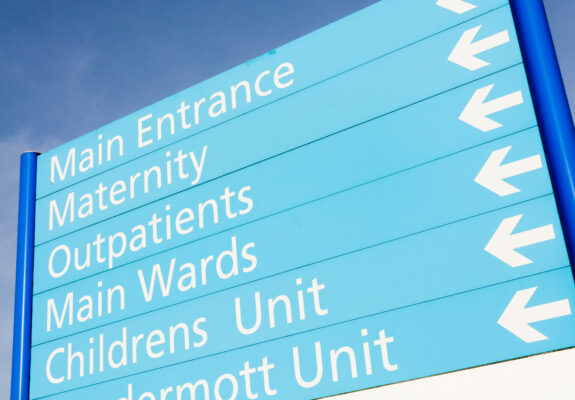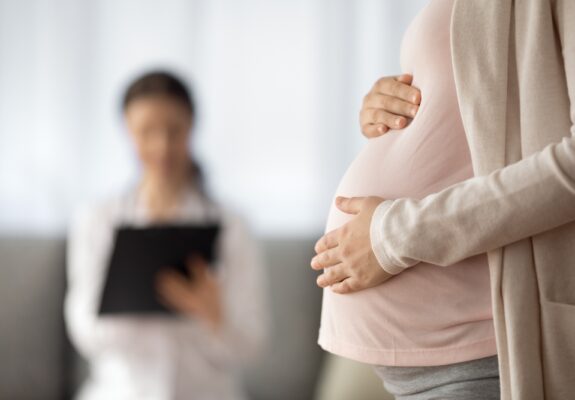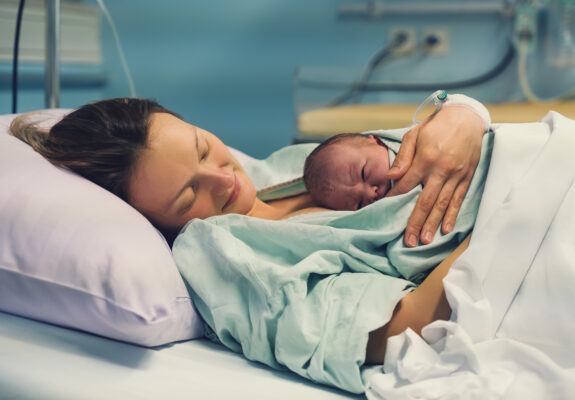Report into the increase of birth injuries in NHS England hospitals
We have analysed maternity care in the UK to determine if there has been an increase in birth injuries in NHS England hospitals.


NHS England Birth Injuries Report 2023
For many, becoming a parent is one of the most fulfilling moments of their life. However, tragically thousands of parents each year experience the stress and trauma of birth injuries. And worryingly, we estimate that as many as 15% of birth injuries may have been the result of medical negligence.
This is a significant figure, especially considering a high proportion of injuries relate to life altering conditions. In fact, according to our research findings the most common birth injury is brain damage.
A concerning number of birth injuries to mother and/or baby have been found to be caused by failed or delayed treatment or diagnosis, a failure to monitor second stage labour, or even failure to recognise complications.
As the latest CQC Maternity Survey shows deteriorating quality of care from patients’ perspectives, we’ve commissioned this new Birth Injuries Report to reveal the impact of inadequate care.
We have analysed in-depth data sourced through a Freedom of Information request to NHS Resolution, alongside literature and reports on maternity care in the UK. What our report has found paints a worrying picture.
What is the scale of the birth injuries problem?
Before we get into the detail it’s important to note, for those who are expecting, the NHS is still one of the safest healthcare systems in the world in which to give birth. NHS Resolution’s dedicated Early Notification Scheme also provides a dedicated service to investigate brain injuries at birth, determining whether negligence has caused harm.
According to our research, 484,000 “birth complications” were recorded across 591,000 births in 2021/22, so we can see the scale of the problem is significant.
Negligence and unnecessary errors have devastating consequences for both parents and baby.
Of the total notified claims by value in the past year, 64% related to maternity – an increase from 62% from the previous year.
From our data we can specifically see that 730 claims were made in relation to brain damage caused to the baby (between 2017 and 2023).
Failure to treat or delaying treatment also appears to be a major driver for the uplift in claims for birth injuries, as more than 800 cases cited this as a cause of their claim.

According to the data we sourced from NHS Resolution, the single most common birth complication in 2021/22 that resulted in a claim was Intrauterine hypoxia, also known as foetal hypoxia. This complication occurs when the foetus is deprived of an adequate supply of oxygen, which can lead to brain damage. According to our data, foetal hypoxia occurred during 7.5% of all births.
The numbers show how an inadequate level of care can so easily have devastating results for all involved.
Sadly, brain damage was found to be the most common obstetrics or neonatology injury based on claim numbers.
| Injury | No. of Claims |
|---|---|
| Brain Damage | 730 |
| Unnecessary Pain | 714 |
| Stillborn | 712 |
| Fatality | 550 |
| Additional/Unnecessary Operation(s) | 544 |
| Psychiatric/Psychological Damage | 496 |
| Cerebral Palsy | 412 |
| Not Specified | 296 |
| Loss Of Baby | 254 |
| Erb's Palsy | 159 |
| Bladder Damage | 158 |
| Hypoxia | 141 |
| Bowel Damage/ Dysfunction | 135 |
| Scarring | 127 |
| Other | 119 |
| Incontinence | 106 |
| Pressure Sores | 88 |
| Other Infection | 78 |
| Bruising/ Extravasation | 74 |
| Fracture | 72 |

Breaking the data down regionally, we can identify problem areas where Trusts are seeing a high volume of potentially preventable birth injuries versus the number of deliveries.
While Liverpool Women’s Hospital ranked 16th in the list of “most deliveries”, the Merseyside hospital ranked 4th for the highest number of birth injury claims.
Moving across the Pennines to South Yorkshire, Sheffield Teaching Hospitals NHS Foundation Trust tells a similar story. This hospital was 8th in the list of “most births injuries” but 26th in the list of “most deliveries”.
A similar trend was identified at both Bolton NHS Foundation Trust and Birmingham Women’s and Children’s NHS Foundation Trust.
Overall, Manchester University NHS Foundation Trust was found to have had the highest number of claims in total, although it’s worth noting this hospital also ranked in the top ten for most deliveries.
| Trust | No. of Claims | Notes |
|---|---|---|
| Manchester University NHS Foundation Trust | 211 | Also feature in top 10 for most deliveries in 2021-22 |
| Mid and South Essex NHS Foundation Trust | 182 | Also feature in top 10 for most deliveries in 2021-22 |
| Barts Health NHS Trust | 166 | Also feature in top 10 for most deliveries in 2021-22 |
| The Leeds Teaching Hospitals NHS Trust | 125 | Also feature in top 10 for most deliveries in 2021-22 |
| Liverpool Women's Hospital NHS Foundation Trust | 115 | Position 16 for most deliveries in 2021-22, suggesting risk level of injury may be higher |
| University Hospitals Sussex NHS Foundation Trust | 114 | Also feature in top 10 for most deliveries 2021-22 |
| Frimley Health NHS Foundation Trust | 110 | Also feature in top 10 for most deliveries 2021-22 |
| Sheffield Teaching Hospitals NHS Foundation Trust | 108 | Position 26 for most deliveries in 2021-22, suggesting risk level may be higher |
| University Hospitals of Derby and Burton NHS Foundation Trust | 102 | Also feature in top 10 for most deliveries in 2021-22 |
| Imperial College Healthcare NHS Trust | 102 | Also feature in top 10 for most deliveries in 2021-22 |

Unfortunately, the numbers suggest a lack of due care and attention could be a significant case of these often life-changing injuries.
Of the 10 most common causes of obstetrics or neonatology injuries (based on number of claims 2017-2023), a failure to treat or delay in treatment was found to occur most frequently.
Failure or delays in diagnosis was the second most common, while failures to monitor second stage labour was the third.
| Cause | No. of Claims |
|---|---|
| Fail / Delay Treatment | 827 |
| Failure / Delay Diagnosis | 379 |
| Fail To Monitor 2nd Stage Labour | 283 |
| Fail To Recognise A Complication | 283 |
| Fail To Make Respond To Abnormally Fast Heart Rate | 224 |
| Fail Antenatal Screening | 190 |
| Inappropriate Treatment | 184 |
| Fail To Monitor 1st Stg Labour | 143 |
| Inadequate Nursing Care | 130 |
| Perineal Tear-1st,2nd,3rd Degree | 116 |

Healthcare professionals in any specialism are under immense pressure now, there is simply no denying that. With that in mind, it can be easy to see these figures and simply put it down to decreasing midwives.
However, what we found was that the number of deliveries had been steadily declining since 2015, with only a slight increase in 2021-22. Meanwhile, the number of midwives appears to have increased in the same timeframe (based on annual averages).
While it’s important to acknowledge that managing births is only one part of a midwife’s job, however our research suggests that the number of deliveries per midwife has consistently declined since 2016. It is fair to assume from these figures that with fewer deliveries to manage, the level of care should certainly not be dropping.
Why then are so many parents not receiving the care they deserve?
One potential answer to this question lies in recent reports into staff turnover in midwifery. One such report from the Nuffield Trust claims one in five midwives leave NHS hospital and community settings within two years after completing their training, increasing to a third after five years.
This high staff turnover creates a significant gap for experienced and long-serving midwives, leaving thousands of parents with inadequate support and thousands of midwives without mentorship or development.
It goes without saying, whether the cause of birth injuries is staff turnover, inadequate training, staff pressures or the culture within the NHS, they need to be avoided in as many instances as possible.
Our conclusion
Carla Duprey, Solicitor in our Medical Negligence team (Liverpool) said;
“As with any sort of medical care or procedure, complications are going to arise and inevitably these will sometimes have tragic consequences. However, parents shouldn’t be left to bear the lifelong burden of medical negligence.
The Early Notification Scheme is certainly a positive step towards early investigation into brain injuries at birth, but we have had instances where families have not been informed there was an investigation being held and have not formed a part of it.
The Scheme should work to support parents and the affected staff, and it should enable the NHS to share information across Trusts to help avoid the same instances reoccurring.
This simply is not happening.
One only needs to read the Ockenden report (Final report of the Ockenden review – GOV.UK (www.gov.uk)) and look at the inquests occurring into babies and mothers who should have survived, to see that these problems are historic and nothing is changing.
There have been four inquiries since 2015 into maternity services (Morecambe Bay, Shrewsbury and Telford, and East Kent Hospitals NHS Trust and Nottingham Hospital Trust).
The fifth the Thirlwall Inquiry, dealing with the Countess of Chester Hospital and identifying learnings following events at that Hospital. Been Let Down – part of the Bond Turner law firm – are one of a small number of law firms assisting in this investigation and inquiry.
More needs to be done to properly fund maternity services and to ensure working conditions for midwives are sustainable, or else parents will continue to be let down on maternity wards across the country. There needs to be an investment in training and in changing the culture of the NHS and in the sharing information so that lessons can be learned.
Failures in maternity care have a long lasting and devastating impact on women, their babies and their families.
Having worked in this field since 2005, I have seen the same mistakes over and over again, and this is unacceptable.
NHS England published a three year delivery plan (NHS England » Three year delivery plan for maternity and neonatal services) for maternity and neonatal services – I hope that this will change the outlook for the future of mothers and their babies.
If you think you have been let down during your pregnancy, childbirth or aftercare, and either you or your baby has suffered as a consequence, you may want to consider a medical negligence claim.
We know it can feel daunting to think about something like this, especially after the immense stress of experiencing a birth injury, so we’re with you every step of the way for support.
NHS Resolution advised that their data does not show an increase in birth injury claims but rather that incidents which would have taken years to be reported are now being reported and investigated far earlier. This is as a direct result of NHS Resolution’s Early Notification Scheme for obstetric cerebral palsy which accelerates investigation and learning and gets answers and much needed support to families far sooner.”
A spokesperson for NHS Resolution also stated that “all cases in the Early Notification Scheme start life as an investigation undertaken by the Healthcare Safety Investigation Brand now carried out by the Maternity and Newborn Safety Investigations (MNSI) programme hosted by the CQC – these investigations only take place following the consent of the family”.
We’re experts at dealing with birth injury compensation claims
When you contact Been Let Down, a member of our expert legal team will be ready to listen to the details of your case and the circumstances of the potential birth injury compensation claim.
We’re here to help
Been Let Down have a team of legal experts that specialise in clinical negligence claims.
We appreciate that putting in a claim can feel daunting, so we are here to help and support you every step of the way.
Please call us on 0800 234 3234 or contact us and a member of our legal team will call you back.
Our sources and methodology
Freedom of Information request sent to NHS Resolution for data on the following:
- The number of Clinical Claims and Incidents received where the Specialty is ‘Obstetrics’ or ‘Neonatology’ split by Trust and primary injury.
- The number and cost of Clinical Claims Closed (or settled) with damages paid, where the Specialty is ‘Obstetrics’ or ‘Neonatology’ split by Trust (with 5 or more claims), primary injury and primary cause – we’re especially interested in data on brain injuries at birth (and claims made in relation to the Early Notification Scheme).
With the data to cover between 2018 and 2023 (as recent as possible) broken down by month (although this was not possible)
Further insight and information was also sourced from the following articles and reports to inform our own report:
- https://www.cqc.org.uk/publication/surveys/maternity-survey-2022
- https://resolution.NHS.uk/services/claims-management/clinical-schemes/clinical-negligence-scheme-for-trusts/early-notification-scheme/
- https://resolution.NHS.uk/services/claims-management/clinical-schemes/clinical-negligence-scheme-for-trusts/early-notification-scheme/
- https://resolution.NHS.uk/wp-content/uploads/2023/07/NHS-Resolution-Annual-report-and-accounts-2022_23-3.pdf
- https://digital.NHS.uk/data-and-information/publications/statistical/NHS-maternity-statistics/2021-22#related-links
- https://digital.NHS.uk/data-and-information/publications/statistical/NHS-workforce-statistics
- https://app.powerbi.com/view?r=eyJrIjoiMTNjYTE3MDUtNTBhYy00YmFjLWI4NzQtNjI2YWZlNTJmMzhmIiwidCI6IjM3YzM1NGIyLTg1YjAtNDdmNS1iMjIyLTA3YjQ4ZDc3NGVlMyJ9
- https://www.nuffieldtrust.org.uk/sites/default/files/2023-09/Nuffield%20Trust%20-%20Student%20loans%20forgiveness_WEB_final.pdf